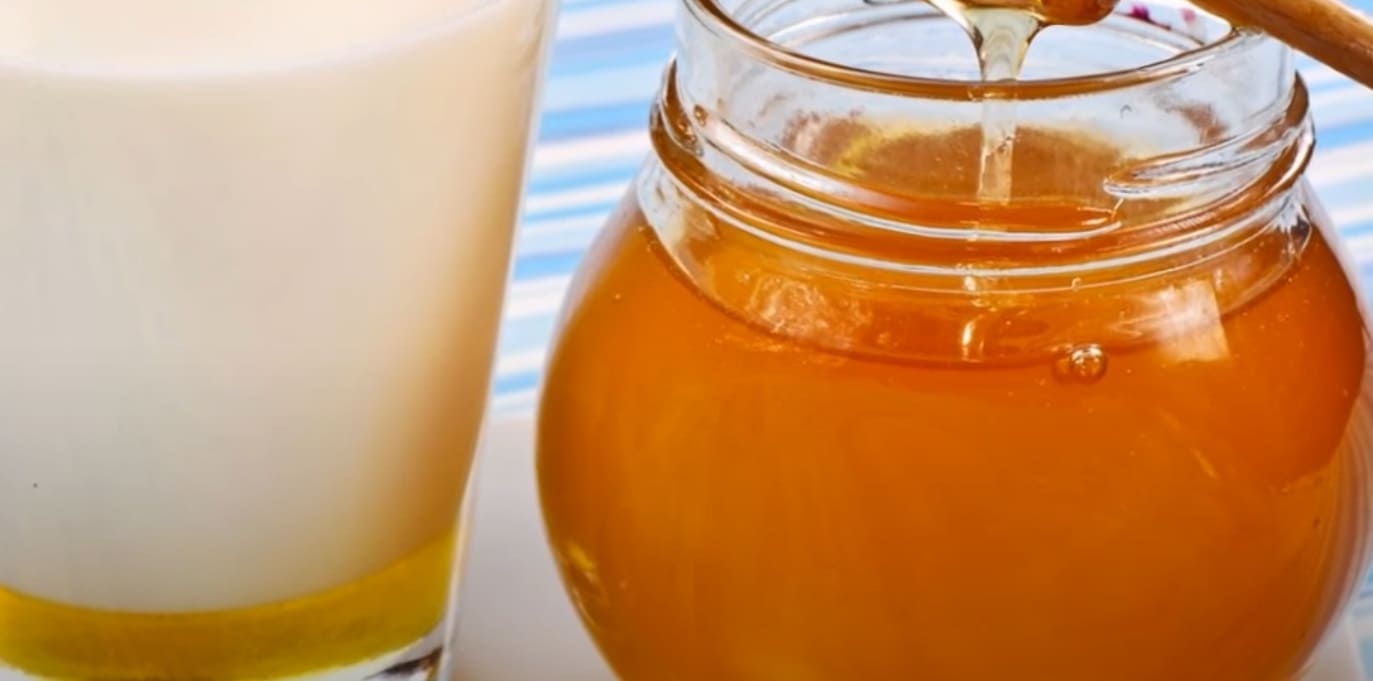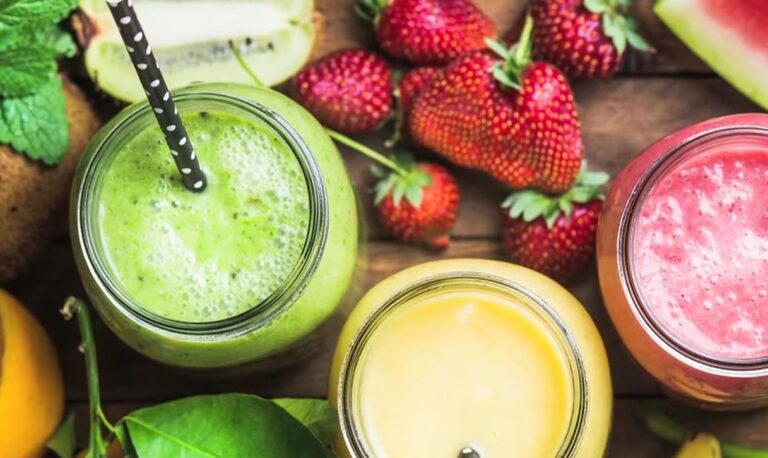Can You Mix Milk and Honey?
Milk and honey have been used for centuries as natural remedies for various ailments, and also as ingredients in many culinary creations. However, there is some confusion about whether it is safe to mix the two together. While some people believe that combining milk and honey can have numerous health benefits, others are concerned about potential risks. In this article, we will explore the question of whether you can mix milk and honey, examining the benefits, risks, and considerations to help you make an informed decision.
So, Is It OK to Mix Milk and Honey?
Yes, you can mix milk and honey. In fact, combining milk and honey has been a popular practice for centuries, both as a natural remedy and as a culinary ingredient. Milk and honey contain various nutrients and bioactive compounds that can provide numerous health benefits. For example, milk is an excellent source of calcium, protein, and other essential vitamins and minerals, while honey is rich in antioxidants, antibacterial properties, and natural sugars. Together, they can help soothe sore throats, promote restful sleep, and improve digestion, among other benefits. However, it’s essential to consider individual factors such as allergies, dietary restrictions, and health conditions before consuming any food or drink. In general, mixing milk and honey is safe for most people and can be a delicious and healthy addition to your diet.
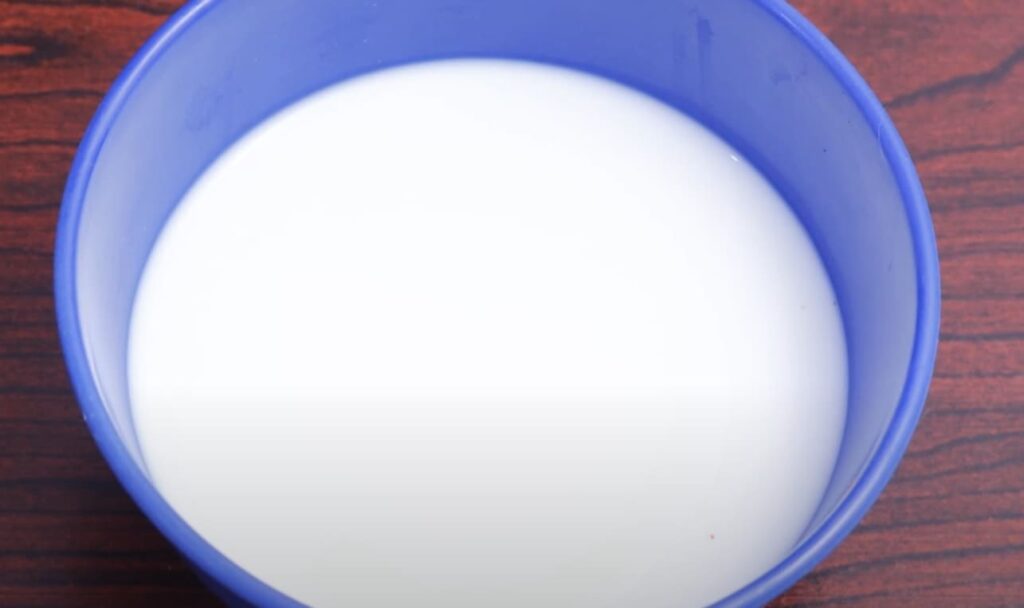
Composition Of Milk
Milk is a nutrient-rich liquid that is produced by the mammary glands of mammals. It is composed of water, carbohydrates, proteins, fats, vitamins, and minerals. Here is a breakdown of the components of milk:
- Water: Milk is primarily composed of water, which makes up about 87% of its volume.
- Carbohydrates: Milk contains lactose, a type of sugar that makes up about 5% of its volume. Lactose provides energy and is the main source of carbohydrates in milk.
- Proteins: Milk contains two main types of proteins: casein and whey. Casein makes up about 80% of the protein in milk, while whey makes up the remaining 20%. Proteins in milk provide essential amino acids that are important for growth and repair of body tissues.
- Fats: Milk contains varying amounts of fat, depending on the animal it comes from and how it is processed. Whole milk contains about 3.25% fat, while skim milk contains less than 0.5% fat. Milk fat provides energy and is a source of essential fatty acids.
- Vitamins: Milk is a good source of vitamins, including vitamin A, vitamin D, and vitamin B12. Vitamin A is important for vision and immune function, while vitamin D is important for bone health. Vitamin B12 is important for the formation of red blood cells and nerve function.
- Minerals: Milk is a good source of minerals, including calcium, phosphorus, and potassium. Calcium is important for bone health, while phosphorus is important for energy metabolism and cell function. Potassium is important for nerve function and blood pressure regulation.
Milk is a nutrient-rich beverage that provides a variety of essential nutrients for good health.
Composition Of Honey
Honey is a natural sweet substance produced by honeybees from the nectar of flowers. It is a complex mixture of sugars, enzymes, amino acids, vitamins, minerals, and other compounds. Here is a breakdown of the composition of honey:
- Sugars: Honey is primarily composed of sugars, with the two main sugars being fructose and glucose. These sugars make up about 85% of the weight of honey, with the remaining 15% consisting of other carbohydrates such as maltose and sucrose.
- Enzymes: Honey contains a variety of enzymes, including invertase, diastase, and glucose oxidase. These enzymes are important for breaking down the sugars in honey and aiding in the digestion of food.
- Amino acids: Honey contains a small amount of amino acids, which are the building blocks of proteins. The specific amino acid content of honey can vary depending on the type of flower the nectar was collected from.
- Vitamins and minerals: Honey is a source of vitamins and minerals, including vitamin C, calcium, iron, and potassium. However, the amounts of these nutrients in honey are relatively small compared to other foods.
- Antioxidants: Honey contains antioxidants such as flavonoids and phenolic acids, which may help protect against oxidative stress and reduce the risk of chronic diseases.
- Water: Honey contains varying amounts of water, depending on how it was produced and stored. Typically, honey contains around 17-18% water.
Honey is a nutritious food that provides a range of health benefits. It is high in sugars and calories, but it also contains a variety of other compounds that may promote good health.
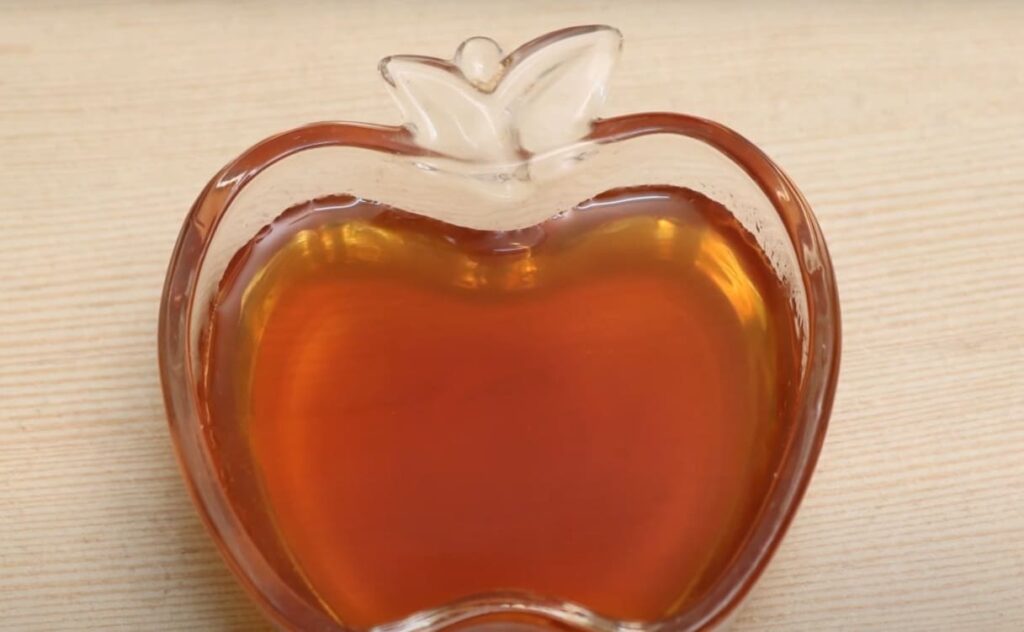
For What People Mix Milk With Honey
Milk and honey are two natural ingredients that have been used for centuries for their health and nutritional benefits. Many people mix milk with honey for various reasons, including:
- As a natural sweetener: Honey is a natural sweetener that can be used to sweeten milk without adding refined sugar.
- For better sleep: Drinking a warm glass of milk with honey before bedtime is a traditional remedy for insomnia. The natural sugars in honey can help increase insulin levels, which can in turn increase the production of the sleep-inducing hormone serotonin.
- For better digestion: Honey contains enzymes that can help break down food, while milk is high in calcium, which can help neutralize stomach acid. Mixing milk with honey can help soothe an upset stomach and improve digestion.
- As a pre-workout drink: Some athletes and fitness enthusiasts drink milk with honey before a workout to provide a quick source of energy. The natural sugars in honey can provide a quick energy boost, while the protein in milk can help build muscle.
- As a skin treatment: Honey and milk are both natural moisturizers that can help hydrate and soothe the skin. Some people mix milk with honey and apply it to the face as a natural facial mask.
Mixing milk with honey can provide a range of health and nutritional benefits, and it is a natural and wholesome alternative to processed sweeteners and energy drinks.

Advantages Of Mixing Milk With Honey
Mixing milk with honey can provide several advantages for health and nutrition. Here are some of the benefits of combining milk and honey:
- Promotes better sleep: Milk and honey are both known for their sleep-inducing properties. Drinking a warm glass of milk with honey before bedtime can help promote relaxation and improve sleep quality.
- Boosts energy: The natural sugars in honey provide a quick source of energy, while the protein in milk helps sustain that energy over a longer period of time. Drinking milk with honey before a workout or in the morning can help provide a natural energy boost.
- Soothes the digestive system: Honey contains enzymes that can aid in digestion, while milk is high in calcium, which can help neutralize stomach acid. Drinking milk with honey can help soothe an upset stomach and promote healthy digestion.
- Provides a range of nutrients: Milk and honey both contain a variety of essential nutrients, including proteins, carbohydrates, vitamins, and minerals. Combining the two can provide a more balanced and nutrient-dense beverage.
- Supports immune system function: Honey contains antibacterial and anti-inflammatory properties, while milk is high in vitamin D and other nutrients that can support immune system function. Drinking milk with honey may help support overall immune system health.
- Promotes skin health: Honey and milk are both natural moisturizers that can help hydrate and soothe the skin. Drinking milk with honey or applying a milk and honey mask to the face can help improve skin hydration and promote healthy skin.
Mixing milk with honey can provide several advantages for health and nutrition. It is a natural and wholesome way to enjoy the benefits of both ingredients.
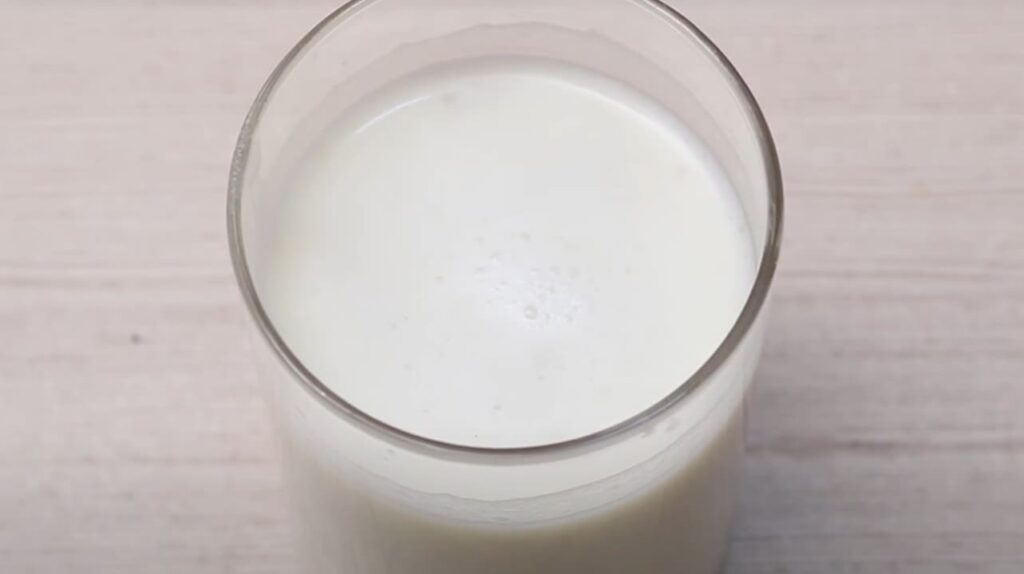
Disadvantages Of Mixing Milk With Honey
While mixing milk with honey can provide many benefits, there are also some potential disadvantages to be aware of, including:
- High calorie content: Both milk and honey are high in calories, so drinking a lot of milk with honey can lead to weight gain if not consumed in moderation.
- High sugar content: Honey is a natural sweetener that is high in sugar, so drinking milk with honey can lead to high blood sugar levels in people with diabetes or those who are sensitive to sugar.
- Allergic reactions: Some people may be allergic to either milk or honey, or both. Allergic reactions can range from mild to severe and may include symptoms such as itching, hives, swelling, or difficulty breathing.
- Lactose intolerance: Some people are lactose intolerant, which means they are unable to digest lactose, the sugar found in milk. Drinking milk with honey can cause digestive symptoms such as bloating, gas, or diarrhea in people with lactose intolerance.
- Contamination: Honey can sometimes be contaminated with bacteria, such as botulism, which can be harmful to humans. It is important to use pasteurized honey and store it properly to reduce the risk of contamination.
Mixing milk with honey can be a healthy and nutritious beverage when consumed in moderation and for people who are not allergic or intolerant to either ingredient. It is important to consult with a healthcare provider if you have any concerns about consuming milk with honey or any dietary changes.
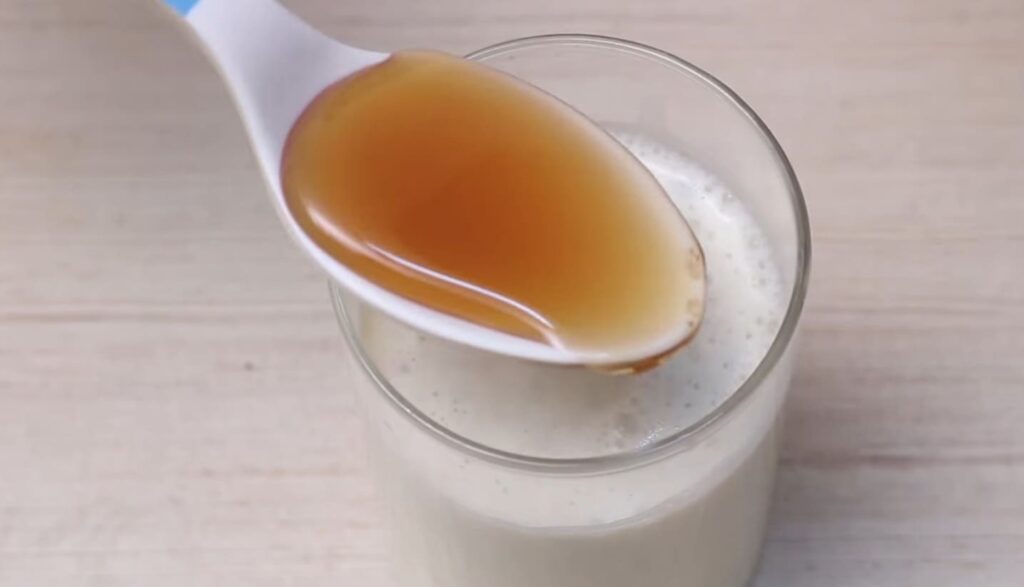
FAQ
Why shouldn’t I mix milk and honey?
There are no specific reasons why you should not mix milk with honey unless you have a specific allergy or intolerance to either ingredient. However, as with any food or beverage, it is important to consume milk with honey in moderation as part of a balanced diet.
While milk and honey both have many health benefits, they are also high in calories and sugar. Consuming large amounts of milk with honey on a regular basis can lead to weight gain and high blood sugar levels, which can be harmful to your health.
Additionally, if you have a milk allergy, lactose intolerance, or honey allergy, mixing milk with honey may not be suitable for you. In these cases, it is best to avoid consuming milk with honey and seek alternative sources of nutrition.
It is always a good idea to consult with a healthcare provider or a registered dietitian if you have any questions or concerns about consuming milk with honey or any other dietary changes.
What can I also mix milk with?
There are many ingredients you can mix with milk to create a variety of delicious and nutritious beverages. Here are some ideas:
- Cocoa powder: Mix milk with unsweetened cocoa powder to make a delicious hot chocolate or chocolate milk.
- Turmeric: Mix milk with turmeric and a touch of honey for a warm and comforting turmeric latte.
- Vanilla extract: Add a drop or two of vanilla extract to milk for a simple yet tasty vanilla milk.
- Cinnamon: Mix milk with a pinch of cinnamon for a warm and cozy cinnamon milk.
- Fruits: Blend milk with your favorite fruits, such as strawberries, bananas, or blueberries, to make a creamy and fruity smoothie.
- Coffee: Mix milk with coffee for a classic café latte or cappuccino.
- Matcha powder: Mix milk with matcha powder and a touch of honey for a healthy and energizing matcha latte.
- Protein powder: Mix milk with your favorite protein powder for a protein-packed beverage to help support muscle growth and repair.
These are just a few examples of the many ingredients you can mix with milk. Experiment with different flavors and combinations to find your favorite milk-based drinks.
What can I mix honey with?
Honey is a versatile ingredient that can be used in a variety of sweet and savory dishes. Here are some ideas for ingredients you can mix with honey:
- Lemon juice: Mix honey with freshly squeezed lemon juice to make a simple and refreshing honey lemonade.
- Yogurt: Mix honey with yogurt and your favorite fruits for a healthy and delicious breakfast or snack.
- Mustard: Mix honey with Dijon mustard and a touch of apple cider vinegar for a sweet and tangy salad dressing.
- Oats: Mix honey with rolled oats, nuts, and dried fruits for a delicious and healthy homemade granola.
- Peanut butter: Mix honey with peanut butter for a tasty and protein-packed spread for toast or sandwiches.
- Vinegar: Mix honey with balsamic or apple cider vinegar for a sweet and tangy marinade for meats or vegetables.
- Cinnamon: Mix honey with a pinch of cinnamon for a sweet and warm topping for toast, oatmeal, or yogurt.
- Tea: Mix honey with your favorite tea for a sweet and soothing beverage to help you relax.
These are just a few examples of the many ingredients you can mix with honey. Experiment with different flavors and combinations to discover new and delicious ways to use honey in your cooking and baking.
What shouldn’t milk and honey be mixed with?
Milk and honey are generally considered safe to mix with most ingredients. However, there are some combinations that may not be suitable or may not taste good. Here are some examples:
- Sour ingredients: Avoid mixing milk and honey with sour ingredients such as lemon or vinegar as they may curdle the milk and make the mixture unpleasant to drink.
- Spicy ingredients: Avoid mixing milk and honey with spicy ingredients such as chili powder or cayenne pepper as they may overpower the sweetness of the honey and create an unpleasant taste.
- High acid fruits: Avoid mixing milk and honey with high-acid fruits such as pineapple or kiwi as they may also curdle the milk and create an unpleasant texture.
- Alcoholic beverages: While it is possible to mix milk and honey with alcoholic beverages, the combination may not taste good or may cause digestive upset in some people.
- Carbonated beverages: Mixing milk with carbonated beverages may cause the mixture to foam and create an unpleasant texture.
There are not many ingredients that should be completely avoided when mixing milk and honey. It is important to experiment with different ingredients to find the flavors and combinations that you enjoy.
Related Video: AMAZING Benefits of Having Honey With Milk | Health Benefits of Milk and Honey | VTube Telugu
Summing Up
Mixing milk and honey is a popular practice that has been used for centuries to promote good health and well-being. Milk and honey are both nutrient-rich foods that offer a wide range of health benefits, including improved digestion, better sleep, and increased energy levels. When mixed together, they create a delicious and nutritious beverage that can be enjoyed at any time of the day.
While there are no specific reasons why you should not mix milk and honey, it is important to consume them in moderation as part of a balanced diet. If you have any allergies or intolerances to milk or honey, it is best to avoid mixing them together.
There are many other ingredients that you can mix with milk and honey to create a variety of delicious and nutritious beverages. From cocoa powder to fruits to spices, the possibilities are endless. Experiment with different flavors and combinations to find your favorite milk and honey-based drinks.
Mixing milk and honey is a safe and enjoyable way to boost your health and add a touch of sweetness to your day.

